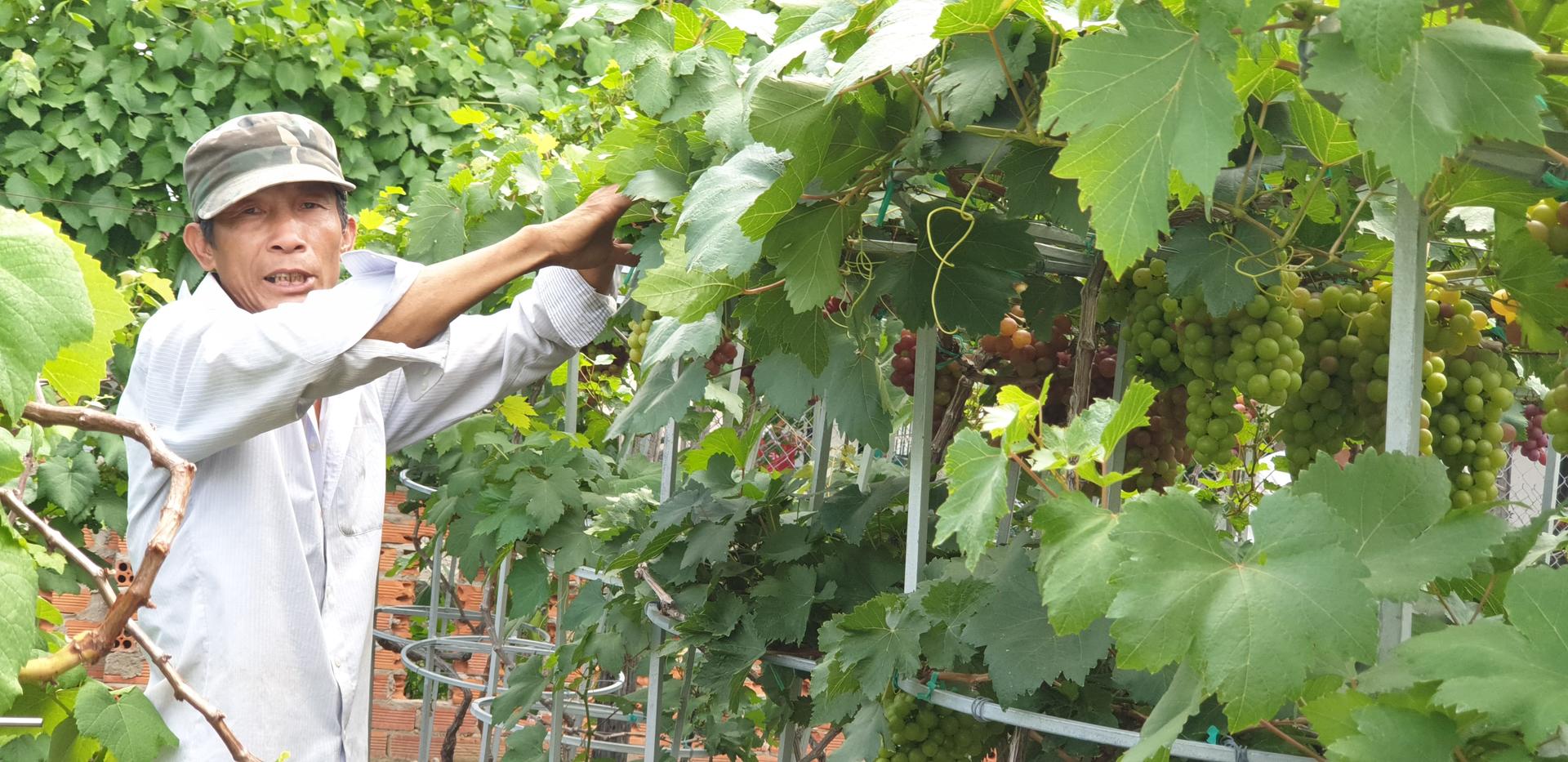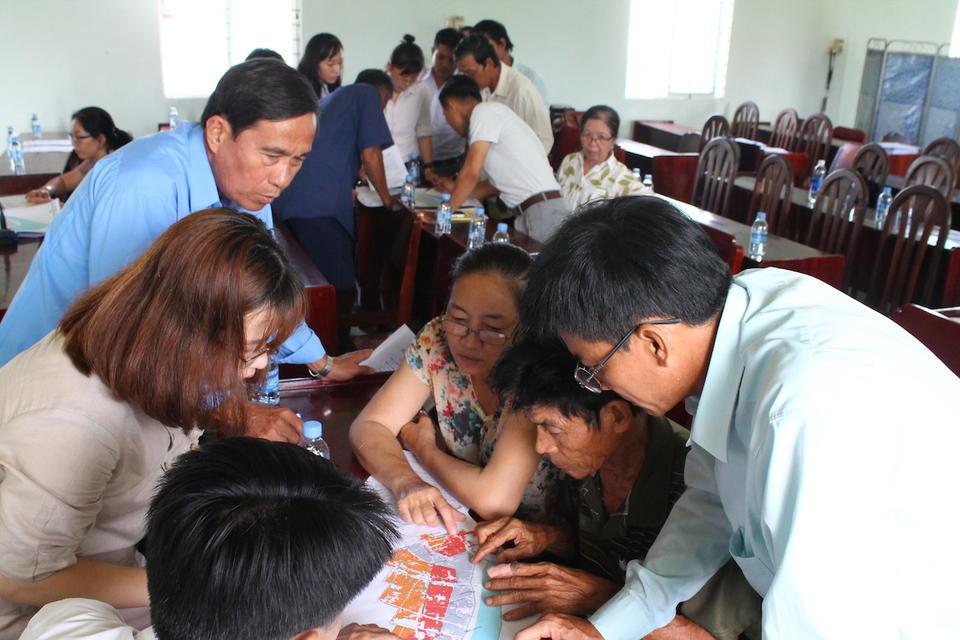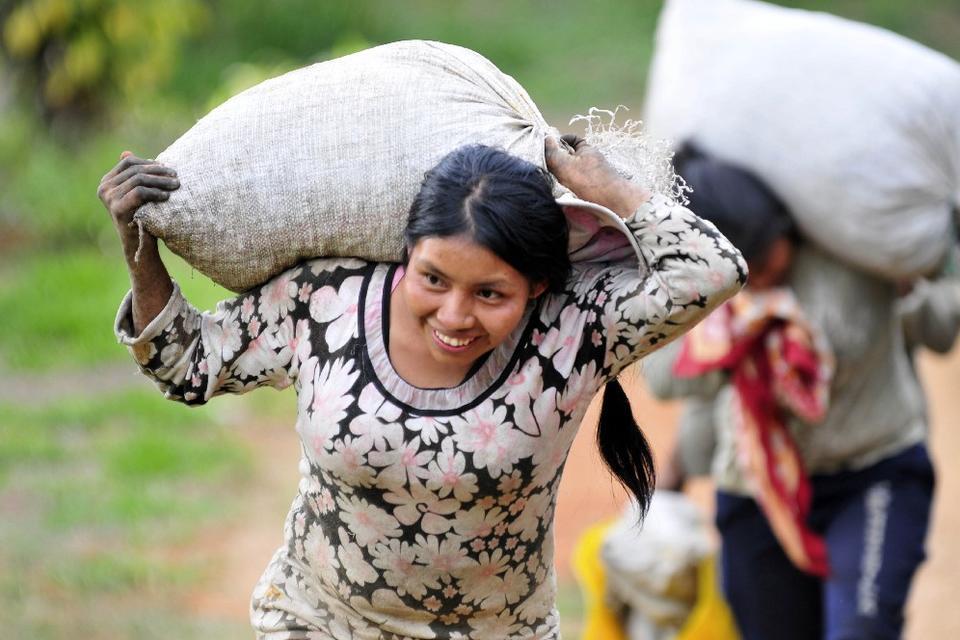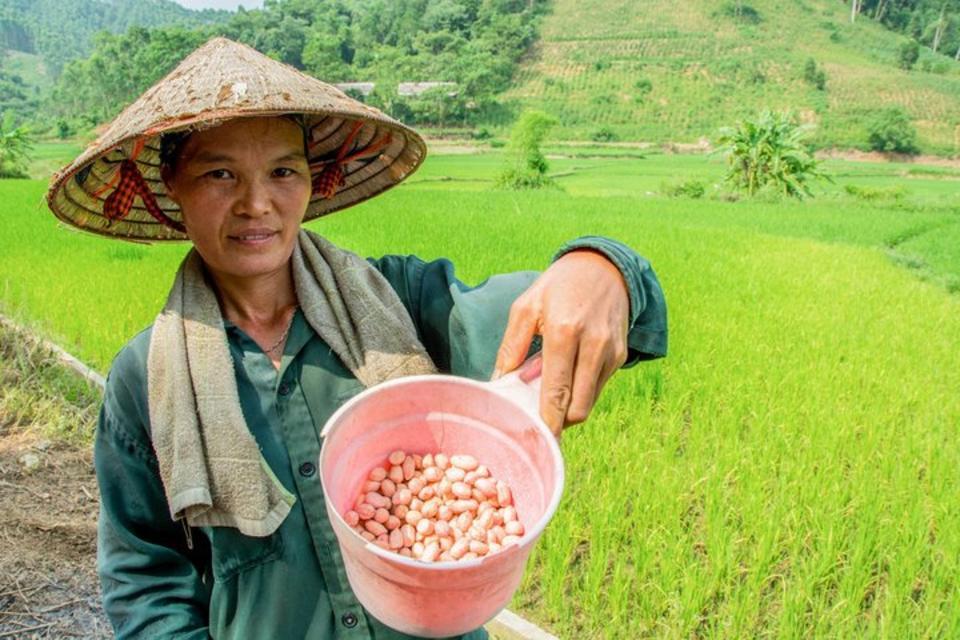Blog Spelling out ACBs: Synergy of Scientific and Local Climate Knowledge in Agro-Climatic Bulletins in Vietnam

Farmers and scientists in Vietnam collaborate in developing agro-climatic bulletins to protect crop production from the region’s climate risks.
By: Ma. Christabella Therese Cabildo and Jay Justine Panghulan
Vietnam’s climate conditions have greatly affected the vulnerability of its local agriculture. In 2020, the region lost US$ 10 billion as a result of the impacts of climate change. Additionally, in 2022, 874 hectares of rice and 4,445 hectares of other crops in many areas of Vietnam were flooded due to Typhoon Noru.
A recent study estimated that with a one-degree increase in temperature, yields of rice - the main crop of the Red River Delta, the Mekong River Delta, and most of Vietnam’s agro-ecological regions - could decrease by 7.09 percent. The World Bank Group also emphasized that increasing threats of drought and saltwater intrusion bring about greater challenges in the production of various other crops in the country such as coffee and fruit trees.
Vietnam is projected to suffer agricultural losses of 5.6 percent due to a changing climate by 2030. As part of efforts to combat the effects of climate change, there is a need to find sustainable solutions to address the current food system challenges in the region.
In bringing together scientific and local knowledge in Vietnam, the Alliance of Bioversity International and CIAT and the Department of Crop Production (DCP) of the Ministry of Agriculture and Rural Development (MARD) have implemented participatory approaches in the development and dissemination of agro-climatic bulletins (ACBs) to reduce climate risks. Through these approaches, smallholders and technical working groups can make better crop decisions aligned with climate adaptation and mitigation strategies.
ACBs are climate information services that reflect the local farmers’ needs in the region. The bulletins are disseminated through multiple channels including loudspeakers, meetings, and online messaging groups. These services aim to provide farmers with recommendations on when to plant crops, which varieties, how to manage soil and water resources, and how to prevent pest and disease outbreaks, all of which can be affected by weather and climate conditions. This initiative helped farmers improve their crop decisions, resulting in more efficient crop farming.
Farmers in Vietnam who used ACBs supported by the Alliance and MARD-DCP have seen an average increase of 266 kg/ha in rice yield, based on correlation assessment. In addition, 40% of interviewed farmers reported a reduction in pesticide costs of over 1.3 million VND (USD $55) per hectare. This participatory approach supports vulnerable farmers to plan crop choices based on weather management strategies.
A farmer from Tan Phuoc district in the Tien Giang province affirms: “I used to spray pesticides without much consideration of the expected weather conditions. The pesticides would be washed away when it rained, costing me around 500-600 thousand VND (USD $21-25) for each application.”
As part of efforts to upscale the implementation of ACBs, the establishment of technical working groups at the provincial and district level – involving hydrometeorological professionals, agricultural officers, water management advisors, as well as farmers – creates opportunities to bring together expert and local knowledge to address the region’s food system challenges. Through the Alliance’s collaboration with the DCP, ACB initiatives are expected to expand to other regions of Vietnam through its incorporation into government policies.
Implementing the ACB approach
The ACB approach in Vietnam initiated by DeRISK Southeast Asia is based on seasonal, monthly, or 10-day forecasts. The bulletins are targeted to provide recommendations based on seasonal and short-term forecasts.
To increase the impact of ACBs, relevant stakeholders such as farmers and agricultural advisors are coming together to prepare for the implementation of ACBs for determining climate needs and assessing their willingness to participate in the technical working group.
Climate and agricultural data are translated into recommendations for priority crops such as rice, fruit, and vegetables based on weather conditions. In addition, the information disseminated is aligned with local contexts and the characteristics of the end users for them to make informed decisions for their unique needs. As a form of feedback, farmers who utilize the ACBs evaluate their experience of the tool, allowing the developers to further improve the services.
Institutionalizing ACBs
Through the participatory approach, farmers are given the opportunity to be at the forefront of climate change action rather than simply being on the receiving end. Engaging farmers emphasizes the participatory nature of ACBs, which uses a knowledge-sharing platform for stakeholders to access crop and support needs, and identify what type of ACBs is appropriate for end users.
In February 2022, the DCP and the Alliance organized training workshops for seven provinces in the Mekong River Delta - including Tien Giang, Hau Giang, An Giang, Soc Trang, Can Tho, Kien Giang, and Tra Vinh provinces - not only to upscale ACB implementation in these areas, but also to gather and train agricultural advisors and farmers to develop ACBs and to effectively disseminate climate information to farmers.
Alongside other agriculture professionals, farmers contribute to the development of ACBs by providing their observations of the current status of crop growth and local climate conditions in their area. Farmers are also encouraged to provide feedback on the ACBs, and are able to feed back on the bulletins’ content, design, and timing of dissemination through communication channels such as online messaging groups and on-site meetings with the teams that create and develop the tool.
Following the successful implementation and positive feedback from the initial set of provinces, including the participatory and demand-driven nature of ACBs, MARD approved DCP’s plan to extend the reach of the initiative to all 13 provinces in the Mekong River Delta. This approval allows DCP to further upscale ACBs with a government-supported annual budget of 400 million Vietnamese Dong (approximately $17,000 USD) to institutionalize ACBs in the region, making the dissemination of the bulletins a part of the Vietnamese government’s policy.
Local experts
Through the development and dissemination of ACBs and the establishment of technical working groups, the value of cutting-edge scientific knowledge and the importance of local knowledge are bound together.
As stated by Mr. Le Thanh Tung, MARD-DCP’s Deputy Director, the establishment of technical working groups significantly contributes to providing localized and tailored advice for relevant stakeholders, including farmers.
This makes the institutionalization of ACBs an even more promising step towards the dissemination of its benefits to farmers across the Mekong River Delta. In doing this, all provinces with the potential to adapt practices to address the challenges of climate change and food security must develop specific plans: identifying priority districts and the characteristics of end users, as well as specifying timelines for successful dissemination of the ACBs.
To further facilitate the upscaling of the ACBs, future plans include exploring opportunities to streamline the automated generation and production of the bulletin content. This aims to reduce the cost of ACB development while ensuring close collaboration with technical working groups.
Le Thanh Tung concludes: “Automating the ACB creation process would significantly save us time, yet it remains essential to follow a participatory and demand-driven approach to ensure that the ACBs are relevant to local conditions and avoid the production of generic content.”



